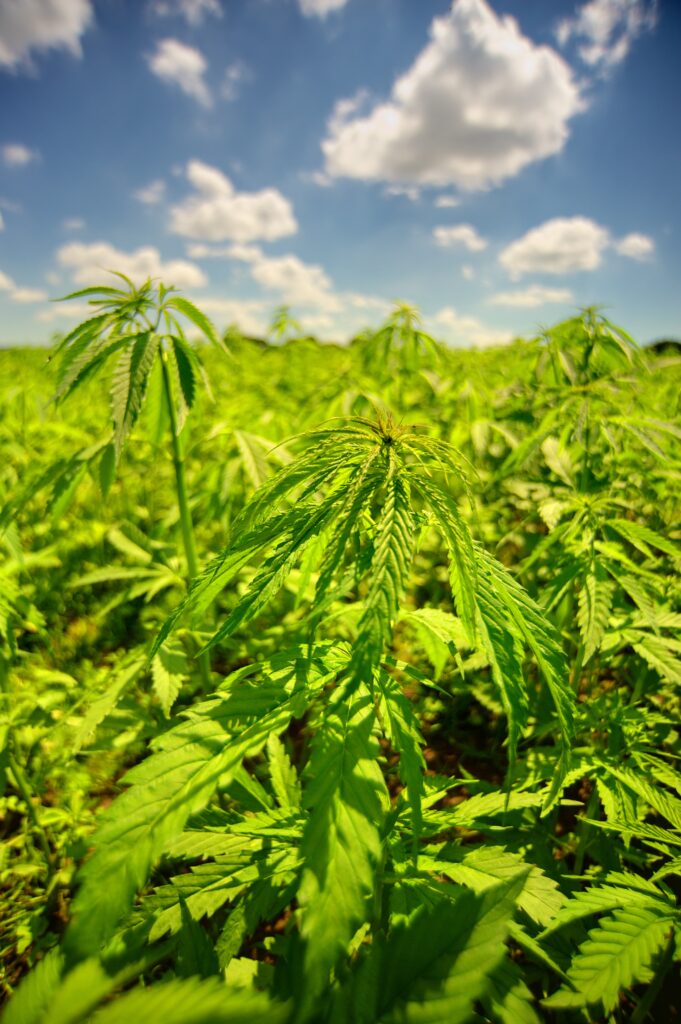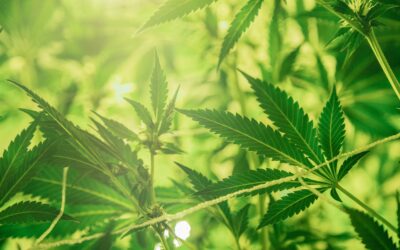Georgia’s agriculture sector serves as a vital pillar of the state’s economy, contributing significantly to both employment and revenue. The region boasts a rich agricultural heritage with crops such as cotton, peanuts, and poultry playing a dominant role. However, the sector faces various challenges, including climate change challenges, fluctuating markets , and the need for sustainable practices. It is within this context that hemp emerges as an exciting prospect for Georgia’s agriculture industry.
Hemp, often referred to as a versatile “super crop,” has garnered increasing attention as a potential gamechanger in the agricultural landscape. With its myriad of applications and benefits, hemp presents a unique opportunity for farmers and entrepreneurs alike. This extraordinary plant is cultivated for its fibers, seeds, and extracts, which are utilized in industries ranging from textiles and construction to food and wellness products. As Georgia seeks to diversify its agricultural portfolio and explore sustainable alternatives, hemp emerges as a promising contender.
Hemp has the potential to revolutionize Georgia’s agriculture sector. The far-reaching benefits of cultivation and utilization of hemp in Georgia could transform the industry in multiple ways . By tapping into the economic potential of hemp, the state can stimulate job creation, attract investments, and generate substantial revenue. Moreover, hemp offers environmental advantages, such as water conservation, soil rejuvenation, and carbon sequestration, which contribute to the sustainability of Georgia’s agricultural practices. As the state navigates the evolving hemp regulations and harnesses the full potential of this versatile crop, Georgia’s agriculture sector stands poised for a transformative future.

Understanding Hemp
Hemp is a variety of the Cannabis sativa plant species and is characterized by its fibrous stalks, thin leaves, and low THC (tetrahydrocannabinol) content. It has been cultivated for thousands of years for various purposes, including fiber production, seed harvesting, and medicinal use. Hemp is known for its rapid growth, resilience, and versatility, making it a valuable crop with numerous applications across industries.
It is crucial to clarify the differences between hemp and marijuana to dispel any misconceptions. While both hemp and marijuana belong to the Cannabis sativa family, they differ primarily in their chemical composition and usage. Hemp contains only trace amounts of THC, the psychoactive compound responsible for the “high” associated with marijuana. In contrast, marijuana strains are cultivated for their high THC content, making them sought after for recreational and medicinal purposes. The clear distinction lies in the THC levels, with hemp being federally mandated to contain less than 0.3% THC.
The legal status of hemp has undergone significant changes in recent years. In 2018, the United States passed the Agricultural Improvement Act, commonly known as the Farm Bill, which legalized the cultivation, processing, and commercialization of hemp at the federal level. This legislation recognized hemp as an agricultural commodity, removing it from the list of controlled substances. In Georgia, hemp is regulated under the Georgia Hemp Farming Act, which aligns with the federal guidelines. The act allows for licensed cultivation and processing of hemp, enabling farmers and businesses to participate in this emerging industry. However, it’s important to remain updated on the specific regulations and licensing requirements in Georgia to ensure compliance with the state laws.
Advantages of Hemp Farming in Georgia
As we have also discussed in previous blog posts, Georgia’s climate and soil conditions offer favorable suitability for hemp cultivation. The state’s warm and humid climate, coupled with its well-drained soils, creates an ideal environment for hemp plants to thrive. Hemp has a relatively short growing cycle, allowing for multiple harvests within a single year. Furthermore, Georgia’s geographic diversity provides opportunities for different hemp varieties, accommodating various market demands and niche products.
Hemp farming in Georgia presents significant economic potential in terms of job creation and revenue generation. As the hemp industry expands, it opens up new avenues for employment, ranging from farming and processing to manufacturing and retail. The cultivation and processing of hemp require a skilled workforce, providing job opportunities across the supply chain. Additionally, the revenue potential of hemp extends beyond the agricultural sector, as it fuels growth in ancillary industries such as manufacturing, textiles, and wellness products.
Hemp farming offers a compelling opportunity for crop diversification in Georgia, reducing reliance on traditional agricultural products. Historically, Georgia’s agricultural landscape has been dominated by crops like cotton and peanuts. By incorporating hemp into the agricultural mix, farmers can mitigate risks associated with market fluctuations, pests, and diseases that affect monoculture systems. Hemp cultivation diversifies revenue streams and promotes resilience in the face of changing market demands, making Georgia’s agricultural sector more robust and adaptable.
Hemp farming in Georgia brings numerous environmental benefits, including water conservation, soil rejuvenation, and carbon sequestration. Hemp has a lower water requirement compared to many traditional crops, making it a more water-efficient option for farmers. Moreover, hemp’s extensive root system helps prevent soil erosion and promotes soil health by reducing nutrient runoff. Additionally, hemp plants have a high carbon dioxide uptake capacity, contributing to carbon sequestration and mitigating climate change impacts. By incorporating hemp into agricultural practices, Georgia can advance sustainable farming methods and contribute to environmental stewardship.
Hemp Cultivation in Georgia
Hemp cultivation in Georgia requires the selection of suitable varieties and strains that can thrive in the state’s climate and soil. Varieties with shorter flowering periods are often preferred to ensure successful harvests within Georgia’s growing season. Additionally, strains that exhibit resistance to pests, diseases, and environmental stressors common to the region are crucial. By identifying and cultivating appropriate hemp varieties, farmers in Georgia can maximize yields and optimize the quality of their crops.
Implementing best practices is essential for successful hemp cultivation in Georgia. Proper soil preparation, including soil testing and amendments, ensures optimal nutrient availability and pH levels. Adequate irrigation techniques tailored to Georgia’s climate and the specific needs of hemp plants are vital. Farmers should also prioritize integrated pest management strategies to mitigate potential pest and disease pressures. Additionally, understanding optimal planting times and spacing, as well as employing effective weed control measures, contributes to successful hemp cultivation practices in the state.
Hemp farmers in Georgia face several challenges, including navigating evolving regulations, securing reliable markets, and accessing adequate financing and insurance options. As the hemp industry continues to develop, regulatory frameworks may evolve, requiring farmers to stay informed and adapt their practices accordingly. Establishing stable markets for hemp products, both domestically and internationally, is crucial to ensure consistent demand and fair pricing. Access to capital and insurance tailored to the unique needs of hemp farming can help mitigate financial risks and provide security for farmers. Collaborative efforts between farmers, industry associations, and policymakers can address these challenges by fostering supportive networks, advocating for favorable policies, and promoting market access for Georgia’s hemp farmers.

Georgia’s Hemp Processing And Infrastructure
Georgia currently has a growing number of hemp processing facilities like Second Century Ag that play a crucial role in the hemp supply chain. These facilities encompass various stages of hemp processing, including extraction of CBD and other valuable compounds, fiber processing, and seed processing. These existing processing facilities provide vital infrastructure for Georgia’s hemp industry, enabling farmers to efficiently convert harvested hemp into market-ready products. If you are interested in talking more about this make sure to fill out our contact form below. We specialize in helping farmers bring this new crop to market.
There is significant potential for the growth and development of hemp processing infrastructure in Georgia. As the hemp industry expands and diversifies, the demand for processing capacity is expected to increase. This presents an opportunity for entrepreneurs and investors to establish new processing facilities, focusing on specialized processing techniques for different hemp products. Expanding infrastructure will not only enhance the value chain within Georgia but also attract farmers from neighboring states to utilize the processing capabilities, fostering economic growth and job creation.
Research institutions and partnerships play a pivotal role in advancing hemp processing techniques in Georgia. Collaborations between universities, agricultural research centers, and industry stakeholders contribute to the development of innovative processing methods, quality standards, and product diversification. Research initiatives can focus on areas such as improving extraction technologies, exploring new applications for hemp fibers, and optimizing seed processing techniques. These efforts enhance the efficiency, sustainability, and profitability of hemp processing, ensuring Georgia remains at the forefront of hemp innovation. By fostering strong research-industry collaborations, Georgia’s hemp processing sector can continuously evolve and adapt to meet the evolving needs of the industry and consumers.

Hemp Products and Market Potential in Georgia
Hemp offers a diverse range of products that extend well beyond CBD extracts. In Georgia, the potential applications of hemp are vast and include textiles, construction materials, food and beverages, personal care products, biofuels, and more. Hemp fibers can be transformed into durable and sustainable textiles, while its hurd (the inner woody core) can be used to create eco-friendly construction materials such as hempcrete. Additionally, hemp seeds and oil have nutritional value and are used in various food and beverage products. Exploring the diverse range of hemp products allows Georgia to tap into multiple industries and foster a robust and sustainable hemp-based economy.
Consumer demand for hemp products in Georgia and across the United States continues to grow steadily. There is a growing awareness and appreciation for the health and environmental benefits of hemp-derived products. Consumers are seeking natural, sustainable, and high-quality alternatives in textiles, personal care items, dietary supplements, and more. Georgia’s local market, with its population of environmentally conscious consumers, presents a significant opportunity for businesses that offer hemp-based products. Furthermore, as the hemp industry gains traction nationwide, Georgia’s hemp businesses have the potential to tap into larger markets and reach consumers beyond state borders.
Georgia possesses immense potential for hemp-based industries to flourish. The state’s favorable climate for hemp cultivation, along with its existing agricultural infrastructure, provides a solid foundation for the development of hemp industries. By capitalizing on the cultivation, processing, and manufacturing of hemp products, Georgia can establish a competitive edge in the market. The growth of hemp-based industries has the potential to create employment opportunities, drive economic growth, and attract investments to the state. With the right support from policymakers, industry organizations, and research institutions, Georgia can become a hub for hemp innovation, production, and commercialization, positioning itself as a leader in the hemp industry.

Overcoming Challenges and Regulation
Current regulations and licensing requirements for hemp cultivation and processing in Georgia play a crucial role in shaping the industry. Farmers and processors must adhere to specific guidelines to ensure compliance. These regulations include licensing procedures, testing requirements for THC levels, record-keeping obligations, and restrictions on the sale and transportation of hemp. It is essential for Georgia’s hemp farmers and businesses to stay informed about the latest regulations and licensing requirements to operate legally and responsibly within the state.
Addressing concerns related to law enforcement and differentiating hemp from marijuana is vital for the successful development of Georgia’s hemp industry. Due to the visual similarities between hemp and marijuana plants, law enforcement faces challenges in distinguishing between the two. It is crucial to educate law enforcement agencies about the differences in appearance, chemical composition, and legal status of hemp and marijuana. Additionally, the adoption of standardized testing methods to determine THC levels in hemp can assist in accurate identification. Collaborative efforts between law enforcement, industry stakeholders, and policymakers are essential to establish clear protocols and guidelines to prevent misunderstandings and support the growth of Georgia’s hemp industry.
Navigating interstate commerce and ensuring market access for Georgia’s hemp farmers and businesses pose challenges in a rapidly evolving regulatory landscape. While hemp is legal at the federal level, variations in state laws and regulations across different states can create complexities. Farmers and businesses must be aware of interstate transportation regulations and compliance requirements to avoid potential legal issues. Moreover, establishing reliable and consistent market access for hemp products is crucial for Georgia’s hemp industry to thrive. Building strategic partnerships with wholesalers, retailers, and distributors, both within the state and beyond, can help ensure a robust market presence and steady demand for Georgia-grown hemp products. Additionally, advocating for fair trade practices and addressing barriers to market entry can facilitate the growth and success of Georgia’s hemp farmers and businesses in the broader marketplace.

Success Stories: Georgia’s Hemp
Georgia’s hemp industry has seen the emergence of successful farmers who have partnered with Second Century Ag and businesses who have embraced the potential of this versatile crop..
Case studies like Hemp Bros or Second Century Ag focused on innovative hemp-based products and initiatives in Georgia demonstrate the industry’s potential for creating unique and sustainable solutions. From the development of hemp-based textiles and construction materials to the creation of CBD-infused wellness products and innovative hemp-derived food and beverages, these case studies showcase the creativity and market opportunities within Georgia’s hemp industry. By highlighting successful product launches and initiatives, these case studies inspire further innovation and encourage collaboration across different sectors.
The positive impact of Georgia’s hemp industry extends beyond individual businesses and farmers. The growth of the hemp industry contributes to the revitalization of local communities and economies. Job creation and increased economic activity provide opportunities for employment, investment, and the development of support industries. Moreover, hemp cultivation and processing can invigorate rural areas, providing alternative income sources for farmers and revitalizing agricultural communities. The positive ripple effect of a thriving hemp industry can be felt through increased tax revenues, improved infrastructure, and a strengthened sense of community pride. Georgia’s hemp success stories reflect the potential for long-term, sustainable growth that benefits not only individual stakeholders but also the broader society.
The Future of Hemp in Georgia
The future of hemp in Georgia holds promising trends and opportunities for the industry. As consumer demand for hemp products continues to rise, businesses can explore niche markets and innovative applications of hemp. The versatility of hemp presents opportunities in sectors such as textiles, construction materials, sustainable packaging, and even biofuels. Additionally, emerging trends like regenerative agriculture and organic hemp production can further enhance the sustainability and market appeal of Georgia’s hemp industry.
Research and development in hemp genetics and cultivation techniques are key to unlocking the full potential of the crop in Georgia. Investing in research initiatives focused on improving hemp genetics, disease resistance, and productivity can lead to higher-quality crops and increased yields. Advancements in cultivation techniques, including organic practices and sustainable pest management, can contribute to environmental stewardship and long-term viability. By fostering collaborations between research institutions, farmers, and industry stakeholders, Georgia can position itself as a center for cutting-edge research in hemp genetics and cultivation.
To further support the growth of Georgia’s hemp sector, policymakers and stakeholders should consider several recommendations. Firstly, streamlining and clarifying regulations surrounding hemp cultivation, processing, and marketing can provide a stable and supportive environment for businesses and farmers. Enhancing access to financing and insurance tailored to the specific needs of hemp farmers and businesses can mitigate risks and foster growth. Investing in infrastructure development, such as processing facilities and testing laboratories, can strengthen the supply chain and attract investments. Additionally, fostering partnerships between educational institutions, industry associations, and research organizations can facilitate knowledge exchange, skill development, and innovation. Finally, proactive marketing efforts to promote Georgia’s hemp products domestically and internationally can boost market visibility and create new opportunities for growth. By implementing these recommendations, Georgia can position itself as a leader in the hemp industry and maximize the potential of this valuable crop.
In conclusion, hemp holds immense significance for Georgia’s agriculture sector. We have explored the various aspects of hemp cultivation, processing, and market potential, highlighting its suitability for Georgia’s climate and soil, economic benefits, and environmental advantages. The versatility of hemp, from its fibers to its seeds and extracts, offers a wide range of opportunities for farmers and businesses to diversify their crops and tap into emerging markets.
The transformative potential of hemp in Georgia’s agriculture sector cannot be understated. It has the power to revolutionize the industry by creating jobs, generating revenue, and promoting sustainable practices. With its ability to thrive in Georgia’s climate and its versatility in various applications, hemp has the potential to transform not only the agricultural landscape but also the economic and environmental outlook of the state.
As readers, it is crucial for us to explore and support Georgia’s hemp industry. By seeking out and purchasing hemp-based products, sharing this article, we can contribute to the growth of local businesses and farmers. Additionally, staying informed about the latest regulations, supporting advocacy efforts, and fostering collaborations within the industry can help create a favorable ecosystem for Georgia’s hemp sector. Together, we can harness the transformative power of hemp and position Georgia as a leader in the emerging hemp industry, paving the way for a sustainable and prosperous future.





0 Comments